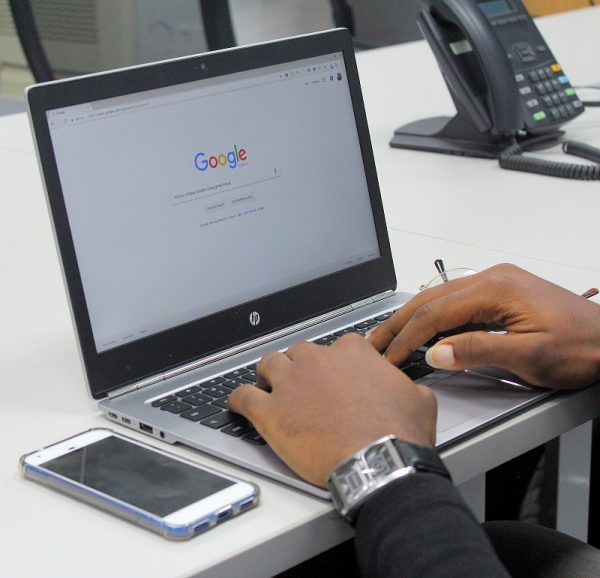COVID-19 – Lockdown Homes Going Online for 41 Hours a Week

A new Opinium survey of 2,002 UK adults, which was conducted between 9th to 14th April 2020, has revealed that UK homes in lockdown during the COVID-19 crisis are spending 41.3 hours online a week (up 29% since pre-lockdown). Time spent working from home is up by 67% and broadband use for school work climbs by 35%.
The Uswitch.com commissioned survey also reveals that the average home has 8 web-connected gadgets (e.g. Smartphones, laptops, TVs etc.), with up to 5 devices using the internet at the same time and that increases to 7 for families.
Before the lockdown, households spent an average of 32 hours a week on the internet, with the bulk of that time (around 7 hours) going toward social media use (Facebook, Twitter, Instagram etc.). By comparison working online now takes up the lion’s share of internet usage (8.5 hours), which is a rise of 67%.
Advertisement
Naturally one of the second biggest increases in internet use during the lockdown has come from video calling, which has jumped by 50% to 4 hours and 12 minutes.
| Activity | Average before lockdown (hrs) | Average during lockdown (hrs) | Increase |
| Work | 5 hrs 6 mins | 8 hrs 30 mins | 67% |
| School/college work | 2 hrs 36 mins | 3 hrs 30 mins | 35% |
| Gaming | 4 hrs 30 mins | 5 hrs 42 mins | 27% |
| Video-calling | 2 hrs 48 mins | 4 hrs 12 mins | 50% |
| Streaming TV, video and films | 6 hrs 30 mins | 7 hrs 52 mins | 22% |
| Social media | 7 hrs 6 mins | 7 hrs 42 mins | 9% |
| Online shopping | 3 hrs 30 mins | 3 hrs 48 mins | 9% |
The survey also examined the regional change in each of these services, although its sample size was so small that we wouldn’t put much stock in their results.
| Internet usage | Highest usage (hrs) | Highest increase (hrs) | Highest increase (%) | |
| Overall internet use | London (54hrs) | Southampton (14hrs 42m) | Southampton (49%) | |
| Work | London (12hrs 36m) | Bristol, London, So’ton (5hrs 42m) | Southampton (116%) | |
| School work | Nottingham (5hrs) | Brighton, Sheffield (1hr 36m) | Sheffield (160%) | |
| Online gaming | Liverpool (7hrs 30m) | Belfast, Liverpool, Nottingham, So’ton (2hrs) | Belfast (118%) | |
| Video calling | London (6hrs 24m) | Brighton (3hrs 6m) | Brighton (148%) | |
| Streaming | London (9hrs 42m) | Belfast (3hrs 18m) | Belfast (70%) | |
| Social media | Southampton (9hrs 36m) | Southampton (2hrs) | Southampton (26%) | |
| Online shopping | Nottingham (5hrs 12m) | Brighton (1hr 12m) | Liverpool (48%) | |
Finally, the survey claimed that the “increased demands on broadband has resulted in households experiencing problems with their connection“, with 21% of households “reporting issues they don’t usually suffer” over the past week.
Some of the aforementioned problems could be speed related, indeed it’s noted that 35% of households with an ADSL connection said they’d experienced problems (no surprise) in the past week that they don’t usually suffer, which falls to 20.7% for those on “superfast broadband” (24Mbps+) and just 13% if you have an “ultrafast” (100Mbps+) service.
Advertisement
Finally, 49% of those reporting problems said their connection kept “cutting out”, while 34% couldn’t even connect in the first place, and 33% found that streaming videos kept buffering.
Sadly the survey misses an opportunity to delve deeper into the detail, which might have helped to establish whether this is the fault of their broadband or something else (e.g. the device being used, slow local WiFi / router etc.).
Mark is a professional technology writer, IT consultant and computer engineer from Dorset (England), he also founded ISPreview in 1999 and enjoys analysing the latest telecoms and broadband developments. Find me on X (Twitter), Mastodon, Facebook, BlueSky, Threads.net and Linkedin.
« Ofcom Records Drop in UK Nuisance Calls, But Problems Remain
Ofcom’s Next UK 5G Auction Faces Legal Challenge from O2 »






















































As you say almost useless survey again, Some of those increases make me wonder who they were actually getting responses from.